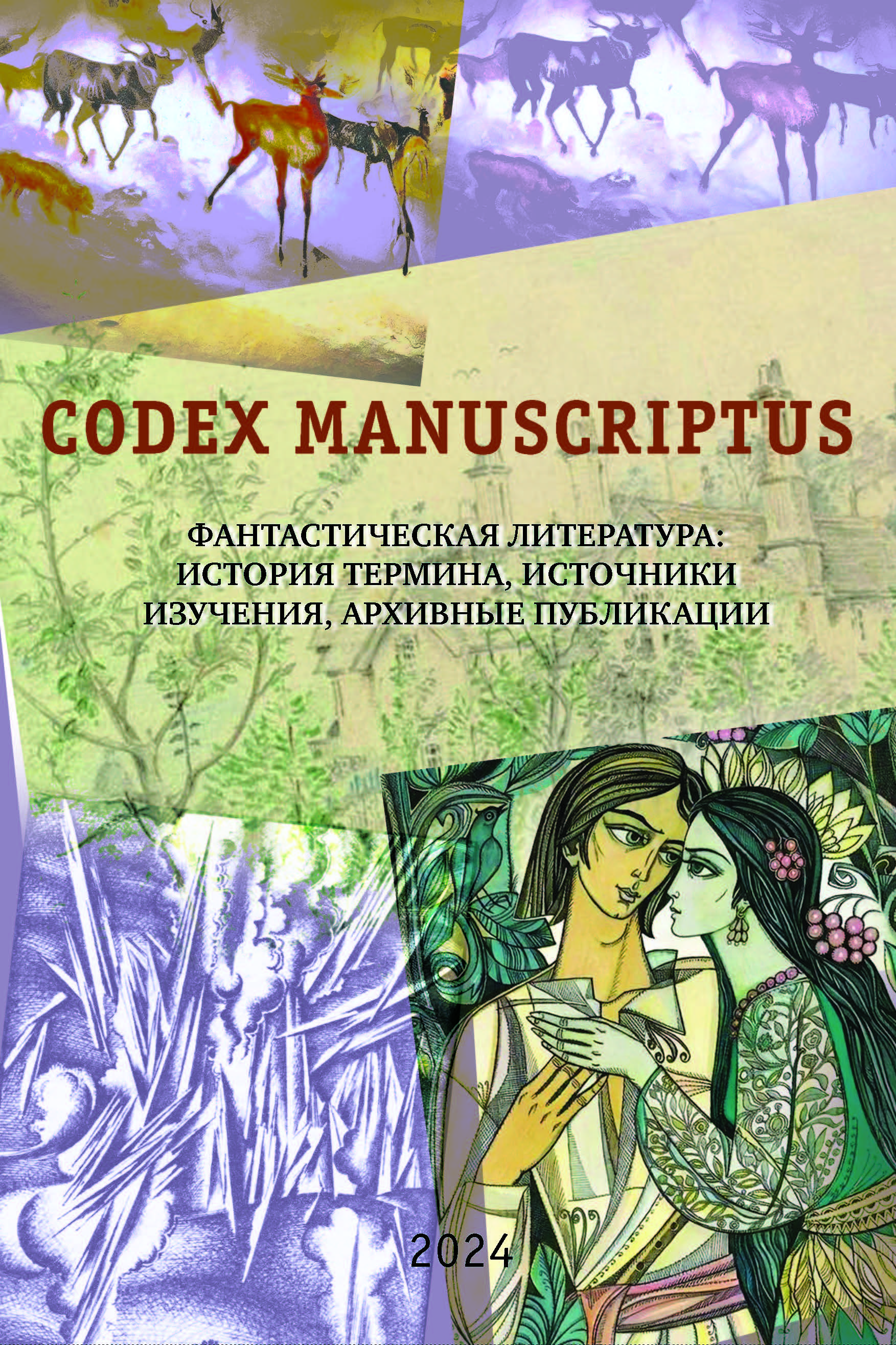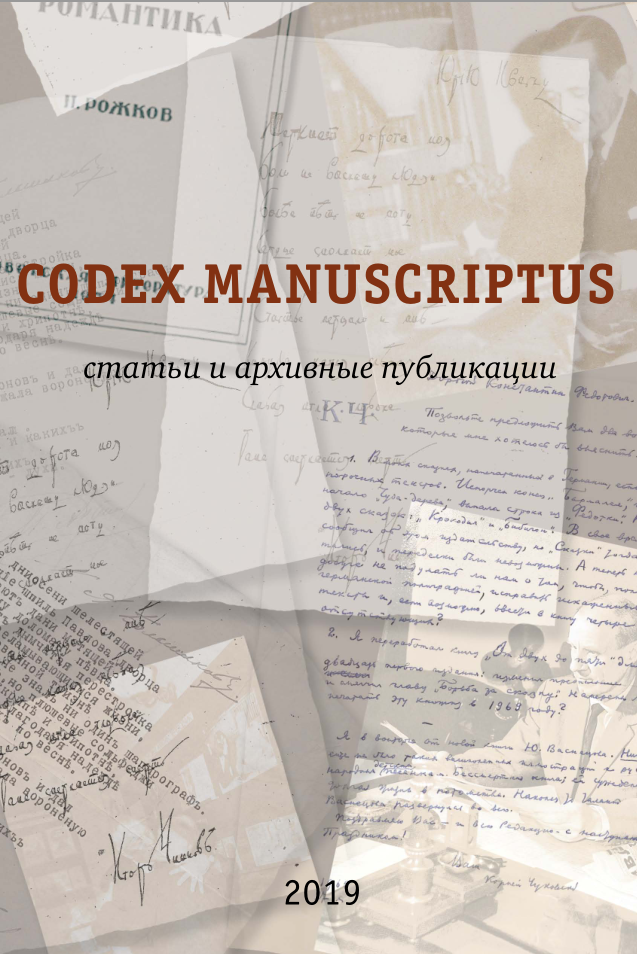Abstract: The book introduces into scientific circulation H. Wells’ novel “The World Set Free” adapted by S. Krzyżanowski for the mass worker-peasant reader, the translation of J. Ruskin’s essay that is published here for the first time and also the research papers dealing with genre and terminology questions of the Russian and foreign fantastic literature from the end of the 19th to the 2nd half of the 20th century; different aspects of its studies; theory of the fantastic literature; reception of the fantastic and its function in the context of social expectations. The proposed book is aimed at a wide range of readers — researchers, teachers, postgraduate students, philology students, historicians, culturologists and everyone interested in the problems of Russian fantastic studies.
Keywords: Soviet literature source studies, archive publication, fantastic literature, theory of fantastic, fantasy, literary theory, genre problems, terminology, Russian literature, world literature.
CONTENTS
ARTICLES AND REPORTS
Literary Theory, History of Literature, Comparative Studies
Anna L. Gumerova, Valentina S. Sergeeva
To the Question of the Theory of Fantastic
Artem A. Zubov.
Fantastic as Reception in Literary History, 19th–20th Centuries
Anna L. Gumerova.
From Clairvoyance to Fantasy Literature: Memory as a Method of Learning of the Past in the Early Works of J.R.R. Tolkien and C.S. Lewis
Ekaterina V. Sklizkova.
The Problem of Fantasy Definition and Secondary Mythological Reality Creation
Anastasia A. Lipinskaya.
On the Nature and Borders of Fantastic in the Ghost Stories
Victoria I. Pulatova.
The Peculiarities of the Chronotope in the Dystopian Story “The Machine Stops” by E.M. Forster
Anastasia E. Rozhkova.
Features of the Interaction between Mystical and Human Realities in the Fairy Drama “The Forest Song” by Lesya Ukrainka
Svetlana V. Balaeva.
The Fantastic and History in the Works by A. Lernet-Holenia
Maria K. Kshondzer.
Fiction as a Form of Artistic Convention in the “Mysterious Stories” by I.S. Turgenev (Based on the Analysis of the Stories “Faust”, “The Song of Triumphant Love” and “Clara Milic”)
Elizaveta S. Apal’kova.
Tools for Creating Pseudo-Magical Art World in “Magical” Russian Literature of the 1910s–1920s
Maria A. Beley.
Genre and Problematic Specificity of Science Fiction by J. Rosny the Elder and A.M. Linevsky
Sergey B. Potemkin.
Chekhov’s Parody on Jules Verne
Sociology of the Literary Process
Marina A. Arias-Vikhil.
Eco-fiction in French Literature of the 1970s
Alexander N. Belarev.
Great Light in the Glass Palace: Architectural Visionality of Paul Scheerbart
Dmitry D. Nikolaev.
Past, Present and Future in the Russian Diaspora Fantastic Literature of the 1920s
Dmitry V. Novokhatskiy.
Alternate History in Russian Literature and Anglo-American Science Fiction: 1950–1970s
Pavel E. Spivakovsky.
Yevgeny Zamyatin: The Fantastic as Political (“Tales of Fita” and “A Story about the Most Important Thing”)
Valentina S. Sergeeva.
The Pedagogic of the Fairy Tale: History and Legend in R. Kipling’s “Puck of Pook’s Hill” and “Rewards and Fairies”
Source Studies and Biographic Studies
Maria V. Ryabova.
“Fantastic Stories” by Viktor Mozalevsky
Margarita T. Sooster.
Alexander Dobritsyn’s Illustrations for Scientific-fantastic Works of Russian and Soviet Writers of the 19th — early 20th Centuries
ARCHIVAL PUBLICATIONS






